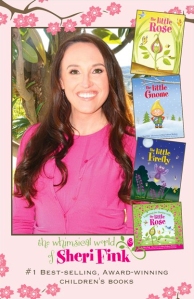Book marketing can be rather overwhelming, especially here in the middle of the publishing revolution. The good news is that there are more and more emerging companies out there who bring a lot of light to this dark arena. Whether you are an author looking for assistance or a reader trying to find the best deals available, this post is to create a compilation of resources you may find helpful.
Pubslush: A global, crowd funding and analytics platform for books only. This platform allows authors to raise money and gauge the initial audience for new book ideas, and for readers to pledge their financial support to bring books to life. Pubslush is entirely about giving: giving an opportunity to authors, giving a voice to readers, and giving books to children without access to literature. http://www.pubslush.com
Author Marketing Club: An author member can submit books for promotional opportunities, as well as access free online training and resources related to book marketing. A reader member will get notified about new and discounted books, and can discover new authors. This service is free for both authors and readers. You can upgrade to the Premium program if you wish for additional benefits, but it is not required for you to do so. Some of the options offered under a Premium membership include an Amazon book reviewer tool that can help you find reviewers who focus on your literary genre. http://authormarketingclub.com/
BookBub: The best marketing dollars I have ever spent have been with BookBub. BookBub is a free daily email that notifies you about deep discounts on acclaimed ebooks. You choose the types you’d like to get notified about — with categories ranging from mysteries to cookbooks — and they email you great deals in those genres. BookBub features ebooks ranging from top-tier publishers to critically acclaimed independent authors. During my last campaign with BookBub, I spent about $260.00 and yielded thousands of downloads as a result. If you are looking for new readers, do yourself a favor and check out BookBub: http://www.bookbub.com/home/
Other great resources for readers:
Pixel of Ink: A website which features daily publishing of Free Kindle Books and Hot Deals. On any given day, there are thousands of Free Kindle Books available. http://www.pixelofink.com/
Inspired Reads: The best Christian Kindle books on a budget. http://www.inspiredreads.com/
Kindle Daily Deal: The best deals available for Kindle. http://amzn.to/KindleDailyDeal
What are your favorite book marketing resources, websites, and venues?










